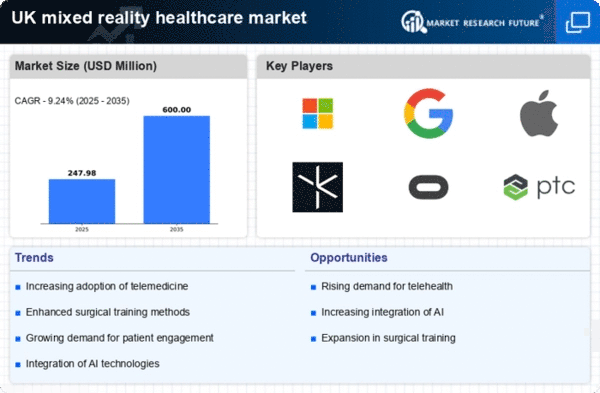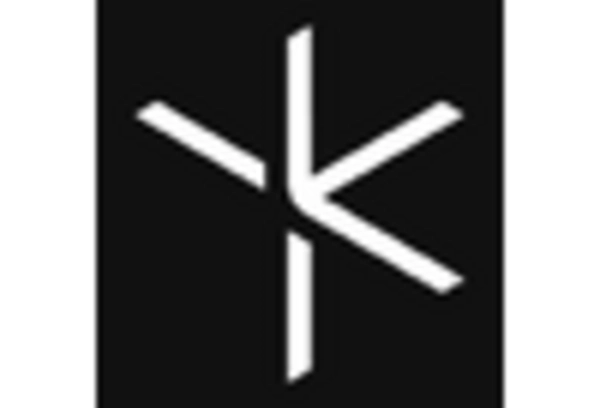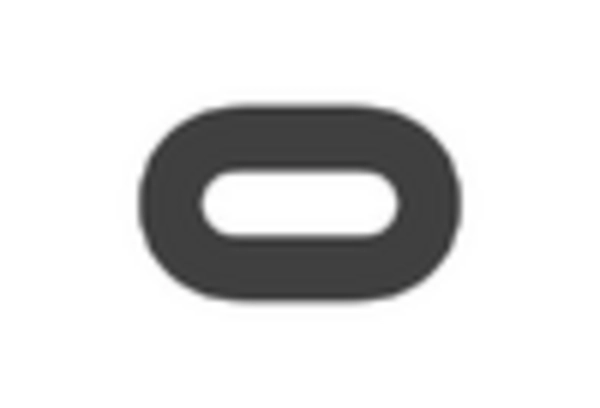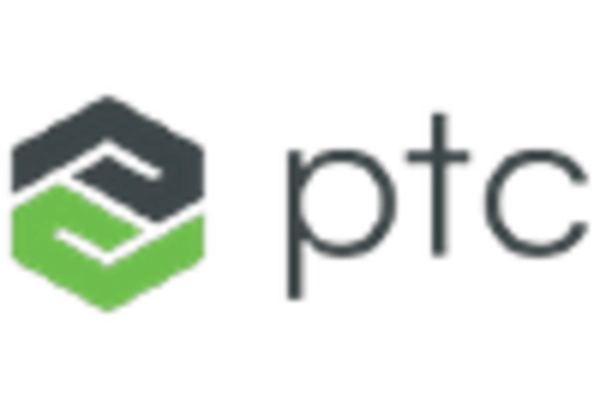Increased Focus on Patient-Centric Care
The mixed reality-healthcare market is increasingly aligning with the trend towards patient-centric care, which prioritises the needs and preferences of patients in treatment plans. MR technologies are being utilised to create tailored experiences that enhance patient understanding and engagement in their own health management. For example, MR applications can provide visualisations of medical conditions and treatment options, empowering patients to make informed decisions. This shift towards personalised care is supported by a growing body of evidence suggesting that patient engagement can lead to improved health outcomes. As healthcare providers in the UK adopt these technologies, the mixed reality-healthcare market is likely to expand, driven by the demand for more interactive and engaging patient experiences.
Technological Advancements in MR Devices
The mixed reality-healthcare market is experiencing a surge in technological advancements, particularly in the development of MR devices. Innovations in hardware and software are enhancing the capabilities of MR applications, allowing for more immersive and interactive experiences in medical training and patient care. For instance, the integration of artificial intelligence and machine learning into MR systems is enabling more precise simulations and real-time data analysis. This trend is reflected in the increasing investment in MR technologies, with the UK government allocating £50 million to support research and development in this sector. As these technologies evolve, they are likely to improve the efficiency and effectiveness of healthcare delivery, thereby driving growth in the mixed reality-healthcare market.
Rising Investment in Healthcare Technology
The mixed reality-healthcare market is experiencing a notable increase in investment, as stakeholders recognise the potential of MR technologies to transform healthcare delivery. Venture capital funding for healthcare technology startups has surged, with investments reaching £1 billion in the last year alone. This influx of capital is enabling the development of innovative MR solutions that address various healthcare challenges, from surgical training to patient rehabilitation. Additionally, established healthcare organisations are also investing in MR technologies to enhance their service offerings. This trend suggests a robust confidence in the future of the mixed reality-healthcare market, as financial backing is crucial for the advancement and implementation of these transformative technologies.
Growing Demand for Remote Healthcare Solutions
The mixed reality-healthcare market is witnessing a growing demand for remote healthcare solutions, driven by the need for accessible and efficient medical services. As healthcare providers seek to expand their reach, MR technologies are being employed to facilitate remote consultations and virtual therapies. This shift is particularly relevant in rural areas of the UK, where access to healthcare can be limited. According to recent data, the adoption of telehealth services has increased by 30% in the past year, indicating a strong preference for remote healthcare options. The ability of MR to create realistic simulations and environments for patient interaction is likely to further enhance its appeal, thus propelling the mixed reality-healthcare market forward.
Regulatory Support for Innovative Healthcare Solutions
The mixed reality-healthcare market is benefiting from increased regulatory support aimed at fostering innovation in healthcare technologies. The UK government has implemented policies that encourage the adoption of cutting-edge solutions, including MR applications, to improve healthcare delivery. Initiatives such as the NHS Innovation Accelerator Programme are designed to support the integration of innovative technologies into the healthcare system. This regulatory environment is conducive to the growth of the mixed reality-healthcare market, as it provides a framework for the safe and effective use of MR technologies. Furthermore, the establishment of clear guidelines for MR applications is likely to enhance trust among healthcare providers and patients, thereby facilitating wider adoption.
















